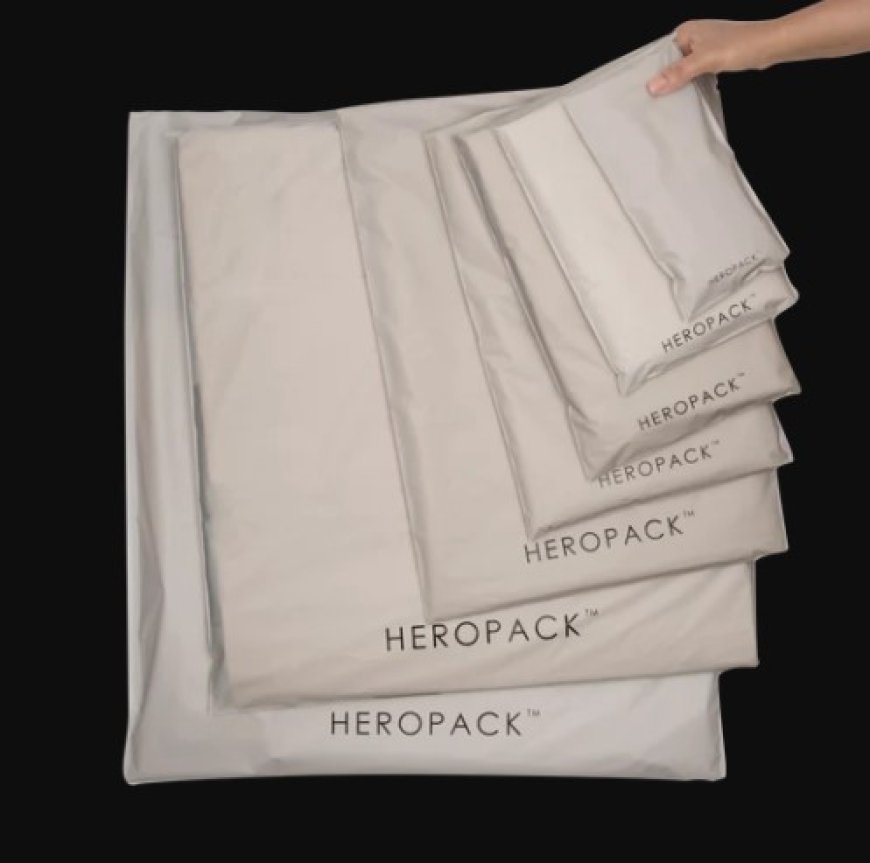Pollastic: Ocean-Bound Plastic Bags – A Questionable Solution
Pollastic: Hero Packaging’s Take on Ocean-Bound Plastic TL;DR: Pollastic cannot be effectively traced, is not regulated and has one option for end of life: landfill. In addition to this, Pollastic is made in China (not in Malaysia). As there is no manufacturing information on the website, nor is there a proper disposa

Pollastic,Ocean bound plastic bags, are marketed as an eco-friendly innovation to tackle plastic waste. However, a closer inspection reveals critical concerns about its traceability, regulation, manufacturing origins, and environmental impact. While the concept of repurposing ocean-bound plastic holds potential, Pollastic falls short of providing a sustainable or transparent solution.
Lack of Traceability and Regulation
One of the most significant issues with Pollastic is its lack of traceability. Ocean-bound plastics are materials collected from areas near waterways where plastic waste is likely to enter the ocean. However, there is no robust system in place to verify whether Pollastic actually originates from such sources. This lack of traceability raises doubts about the product's authenticity and environmental claims.
Moreover, Pollastic is not governed by any specific regulations or certifications. Without proper oversight, it becomes challenging to assess its environmental benefits or ensure that it adheres to global sustainability standards. For consumers looking to make environmentally responsible choices, this absence of transparency undermines Pollastic's credibility.
Manufacturing Concerns
Another issue lies in Pollastic's manufacturing process. Contrary to what some might assume, Pollastic is not produced in Malaysia, where there are stricter quality controls and environmental protocols for such products. Instead, it is manufactured in China, a country with varying environmental and labor standards. Furthermore, the company provides no detailed information about its production process on its website. This opacity makes it difficult to evaluate whether Pollastic's manufacturing aligns with sustainable practices or if it merely shifts the environmental burden elsewhere.
Limited End-of-Life Options
While Pollastic is presented as an environmentally conscious product, its end-of-life scenario tells a different story. These ocean-bound plastic bags have only one feasible disposal option: the landfill. Unlike some innovative plastics that are biodegradable or recyclable, Pollastic does not offer a sustainable disposal pathway. Once discarded, the bags contribute to landfill waste, perpetuating the very problem they claim to solve.
This limited end-of-life option not only diminishes the product's environmental appeal but also highlights the need for more comprehensive solutions in the fight against plastic pollution. A truly sustainable product must address not only its origins but also its ultimate impact on the environment.
Mismatched Marketing Claims
The marketing of Pollastic creates a perception of sustainability that does not align with its actual impact. By leveraging the concept of ocean-bound plastics, Hero Packaging positions Pollastic as an eco-friendly alternative. However, the lack of manufacturing transparency, coupled with limited disposal options, paints a less optimistic picture. For environmentally conscious consumers, these inconsistencies make it difficult to trust the product's green claims.
Towards Better Alternatives
The shortcomings of Pollastic highlight the importance of genuinely sustainable solutions to plastic pollution. True innovation in this space requires transparency, accountability, and a focus on the full lifecycle of a product. Brands must prioritize not only the source of materials but also their manufacturing processes and disposal options.
In conclusion, Pollastic, ocean-bound plastic bags, may sound like a step in the right direction, but its lack of traceability, regulation, and sustainability reveals a need for better alternatives. Consumers should demand more from brands, ensuring that the products they support align with genuine environmental responsibility.
What's Your Reaction?

























